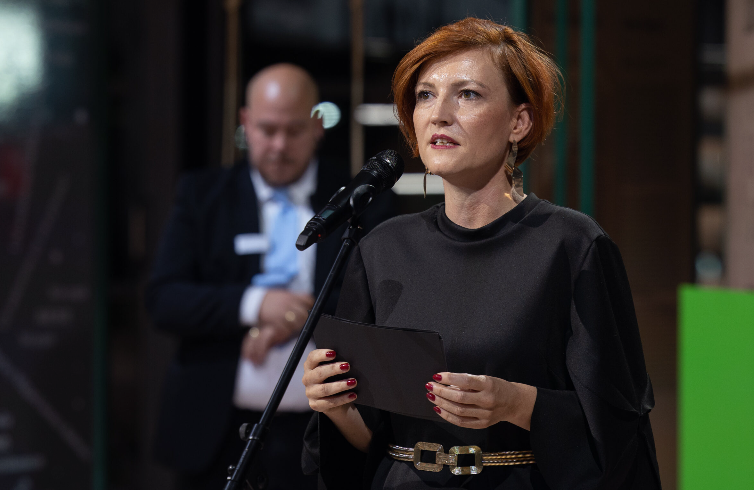The Ministry of Culture has presented a new bill on the media, which is not surprising in its content, given the political nest where it was created. It is big in its words, in finding workarounds to siphon off financial flows to the “real” media outlets and, of course, full of tactics to restrict freedom of speech under the pretext of fighting hate speech.
The law is made up of three nominal pillars: the protection of media autonomy, diversity, and the informing of citizens. Although the Ministry does not say it out loud, it is clear from the Minister of Culture’s appearance on the show Odmevi (Echoes) on Wednesday that, apart from empty platitudes about modernisation and digitalisation, the main task of the new legislation is to repress free speech (but only that of the right) and to make sure that taxpayers’ money gets into the right hands.
The Minister said that the proposals of the political council for the prevention of hate speech, under the patronage of the granddaughter of a communist censor, have been taken into account when working on the new law. She said that “these measures have been studied and taken into account. Because hate speech is certainly on the rise, and we as a country need to take action.” In doing so, she promised an obligation for the media to retract posts within 24 hours, even when the alleged hate speech is written in the comments – with government bureaucrats, of course, deciding who is spreading what they deem to be hate speech. It is important to note that the law also provides that “disobedient” media outlets are not to be given public money.
More taxpayers’ money for tycoons
According to the Minister, the law also foresees a reform of media co-financing or state aid, where “other incentives and aid” would be offered in addition to the media tender, which currently provides for around 2.6 million euros in aid for private media. Apparently, 2.6 million euros for the purely private businesses of Slovenian tycoons is not nearly enough to cover the ruinous politico-commercial media projects.
Their true intention is clear from the words of the Secretary of State, who said that the new “schemes” would “also allow for the possibility of helping the print media to distribute their copies to readers.” The new schemes are therefore intended to subsidise print publications, which are mainly read only by the older population. Petrič and Odlazek, the hegemons in this field, must be delighted. Of course, it is clear that what defines quality media will be decided by officials in the Ministry, which is even more clearly political than the case of the media tender, where the winners are decided by a special commission made up of experts.
Media transparency and media concentration
And how will the new media law tackle media concentration? Simple – it won’t. Media pluralism would be established by the state “through monitoring to identify any media deficit in this area.” So, where there is perceived less media plurality, the state would flood the media space with extra money.
They promise to “control and limit media concentration,” but they have no idea how this would be achieved, unlike the previous law drafted by the Ministry under former Culture Minister Dr Vasko Simoniti. The previous version of the legislation foresaw that media concentrations would be verified by the Agency for Communication Networks and Services of the Republic of Slovenia, which is also the only body with the appropriate staff and skills to identify and dismantle the complex economic networks of related companies. Until now, the Ministry of Culture was also involved in the checking of media concentrations, but it still calmly allowed Odlazek’s network to continue operating, which – contrary to the current legislation – controls both print, radio and television media at the same time. Why has the state allowed such unacceptable concentrations? Because the Ministry itself is not adequately qualified to unravel the ownership of complex ownership structures. And the new law offers no solutions here.
What is more, one of the main academic propagandists of left-wing governments, notorious liar and closeted political activist Marko Milosavljević, professor of journalism at the Faculty of Social Sciences (FDV) in Ljubljana, is already defending the future inaction in the field of media concentration, saying that the level of concentration in certain parts of the media landscape is already so high that the new law will hardly correct it retroactively. “The question is whether the new law can be effective in this area at all if it does not also provide for appropriate mechanisms for what should happen in the event of excessive concentration.”
The relevant mechanisms were already foreseen in the previous legislation, and the European Commission has also reacted positively to the solutions. It is no coincidence that the previous media legislation was most attacked by the journalistic clique employed by, or at least financed by, Odlazek’s network of companies.
At first glance, the new media legislation looks like more of the same – media concentrations will remain, they will be financed even more intensely than before, and the law will also provide for institutional restrictions on freedom of speech under the pretext of combating hate speech.
I. K.


